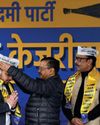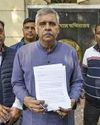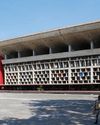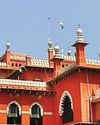1. Justice (Retd.) Jyotsna Sharma; Siddharth Shankar Dubey The Places of Worship (Special Provisions) Act, 1991 (hereinafter referred as 'the 1991 Act') commonly referred to as the Places of Worship Act, was introduced with the primary intent of preserving the religious character of places of worship as they existed on August 15, 1947. This was done to prevent the conversion of any religious sites and to ensure communal harmony across India. On the other hand, the Ancient Monuments and Archaeological Sites and Remains Act, 1958 (hereinafter referred as 'the 1958 Act') was enacted to protect and preserve historical, cultural, and archaeological sites of national importance.

At first glance, the two laws seem to operate in different realms—one protecting religious harmony and the other safeguarding historical heritage. However, when applied to ongoing disputes over religiously significant sites such as the Kashi Vishwanath Temple, Varanasi and the Sri Krishna Janmabhoomi Temple in Mathura, a nuanced legal interpretation reveals that the two statutes are not mutually exclusive. There is a dire need to explore the interplay between these two laws, establishing that the 1991 Act does not act as an absolute barrier to contesting ownership or title over religious sites, particularly when such places also hold significant historical and cultural importance as outlined in the 1958 Act. The ongoing debates over the Varanasi and Mathura sites demonstrate that contesting the title of these locations can be well within the bounds of the law, provided the historical and archaeological context is considered alongside religious interests.
The 1991 Act was enacted against the backdrop of rising communal tensions, especially concerning the Babri Masjid-Ram Janmabhoomi dispute in Ayodhya. The central objective of this law was to prevent any future disputes over the conversion of places of worship by locking their religious character as of the date of Indian independence on August 15, 1947. Section 3 of the Act explicitly prohibits the conversion of any place of worship, ensuring that no religious site can change its status from what it was on the said date. Section 4 fortifies this by preventing any court from entertaining suits or appeals regarding the religious character of places of worship. This section also mandates the abatement of any pending suits related to such matters. However, the Act carves out crucial exceptions, especially under Section 4(3) and Section 5, which prove essential in the ongoing legal discourse surrounding Varanasi and Mathura.
Diese Geschichte stammt aus der October 29, 2024-Ausgabe von The Business Guardian.
Starten Sie Ihre 7-tägige kostenlose Testversion von Magzter GOLD, um auf Tausende kuratierte Premium-Storys sowie über 8.000 Zeitschriften und Zeitungen zuzugreifen.
Bereits Abonnent ? Anmelden
Diese Geschichte stammt aus der October 29, 2024-Ausgabe von The Business Guardian.
Starten Sie Ihre 7-tägige kostenlose Testversion von Magzter GOLD, um auf Tausende kuratierte Premium-Storys sowie über 8.000 Zeitschriften und Zeitungen zuzugreifen.
Bereits Abonnent? Anmelden

Fitness Influencers Rohit Dalal, Akshay Dilawari Join AAP
Fitness influencers, Rohit Dalal and Akshay Dilawari, known for their work in the sports and fitness industry, joined the Aam Aadmi Party (AAP) on Thursday.

AAP Keeps Giving Strange Statements to Be in News: BJP
After the Aam Admi Party (AAP) accused Congress of \"speaking the BJP language\", Bharatiya Janata Party MP Sudhanshu Trivedi on Thursday took a dig at the AAP, saying that they make such strange statements to remain in the news, adding that their statement is an admission of their defeat in the Delhi elections.

Cong Accuses Kejriwal of Shifting Blame as AAP's Credibility Collapses
The Delhi unit of Congress claims that the fear of losing the upcoming assembly elections is now haunting Arvind Kejriwal.
NDMC Passes Resolution Condemning Delhi Govt's Schemes
The New Delhi Municipal Corporation (NDMC) on Thursday passed a resolution condemning the AAP-led Delhi government's 'Mukhya Mantri Mahila Samman Yojna' and 'Sanjeevani Yojna'.

Sandeep Dikshit complains to LG against AAP's 'Mahila Samman' scheme
Congress's complaint comes a day after a couple of departments under the Delhi government clarified there is no such scheme and distanced themselves from AAP's promises.

CASH FOR VOTES: AAP MOVES TO ED
Sanjay Singh lodged a complaint with ED against Parvesh Verma, Manjinder Singh Sirsa for allegedly distributing cash to voters.
![Kerala High Court: Quashing Of Serious Offence To Efface Evidence Already Recorded Cannot Be Done Even At Instance Of Survivor [POSCO Act] Kerala High Court: Quashing Of Serious Offence To Efface Evidence Already Recorded Cannot Be Done Even At Instance Of Survivor [POSCO Act]](https://reseuro.magzter.com/100x125/articles/26854/1941485/3Dir29po62bcaaKmtxZsys/KERALA-HIGH-COURT-QUASHING-OF-SERIOUS-OFFENCE-TO-EFFACE-EVIDENCE-ALREADY-RECORDED-CANNOT-BE-DONE-EVEN-AT-INSTANCE-OF-SURVIVOR-POSCO-ACT.jpg)
Kerala High Court: Quashing Of Serious Offence To Efface Evidence Already Recorded Cannot Be Done Even At Instance Of Survivor [POSCO Act]
The Kerala High Court in the case xxx v State and Another observed and has dismissed the petition filed by a victim of POCSO offence to quash the proceedings saying that serious offences are involved and the trial had reached at the end stage.

Punjab And Haryana High Court: POSCO Act Being Enacted Subsequently Will Prevail Over SC/ST Act In
Adding to it, the court stated that when there being a conflict between the provisions of two special enactments, it is trite that the provisions of the latter of the two enactments will prevail and since the POCSO Act is a subsequent enactment, therefore, its provisions will prevail over the SC/ST Act.

Madras High Court Grants Interim Bail To Temple Activist, Asks Him To Refrain From Making Objectionable Comments Against Women
The Madras High Court in the case Rangarajan Narasimhan v State of Tamil Nadu observed and has granted bail to temple activist Rangarajan Narasimham for allegedly making derogatory comments against a woman on social media.

Orissa High Court: Dispute Related To Infringement Of Copyright Is Arbitrable, Arbitrator Can Be Appointed Under Section 11 Of Arbitration Act
The Other party opposed the application which being on the ground that the dispute as evident from the petitioner's notice seeking the appointment of an Arbitrator regards to infringement of copyright which is non-arbitrable.